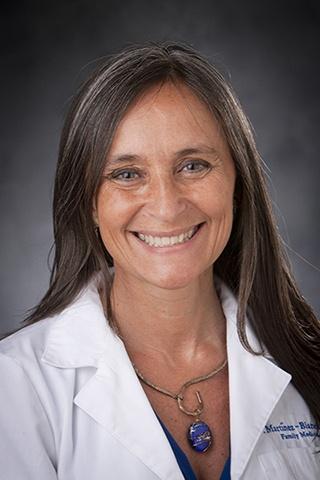It was with significant satisfaction that I read the new position paper by the American Academy of Family Physicians “Integration of Primary Care and Public Health,” a call to action, published on December 18.
With this white paper, the AAFP “urges its members to become informed about the importance, the value, and the movement for integration of primary care and public health. Family physicians play a critical role in integration and can continue to contribute through inclusion of local, regional, state, and national public health partners within the medical neighborhood.”
In 2006, the Duke Family Medicine Residency Program started to redesign its curriculum with an emphasis on population health. We felt that it was a crucial and important moment for healthcare in the United States to redesign and redefine training family doctors with population health as a core value of the specialty.

A population health workshop conducted with applicants of the Duke Family Medicine Residency Program.
Included in population health are four competency domains:
- community engagement
- public health
- critical thinking
- leadership/team skills
As we redesigned our program, we weren’t sure if we would have enough medical students interested in our model. Our curriculum dedicates time to:
- working in ambulatory care
- developing the skills needed in the Duke Family Medicine Center
- leaving the boundaries and walls of the clinic to get out in the community — physically through community-engaged activities and clinical experiences — and intellectually through
- studying and creating new models and policies;
- assessing communities and understanding the physical and social environments in which they live;
- planning interventions with the community’s input and participation;
- developing leadership skills;
- teaching;
- improving transitions of care;
- doing quality improvement projects; and
- establishing new models of healthcare and practice redesign.
Eight years later, as we end another recruiting season that included 583 applicants — 218 U.S. graduates, 86 invited, and 57 interviewed — we have met, once again since the redesign of the program, an amazing group of applicants.
Students who already have “walked the talk” of engaging communities through activities in schools, churches, shelters, streets, and barbershops. Students involved in community-engaged research, working with public health departments, with communities in rural, suburban and inner city USA and the world, young men and women who understand the value of empowering communities through education, policymaking and leadership development, who see the role of the family doctor not confined to the Family Medicine Center, but actively engaging communities, bridging the “silos” between primary care and public health.
The AAFP ends its position paper with this statement: “The role of the Family Physician in integration will be a large one as Family Medicine is poised to be the leadership specialty of the new culture of medicine. Health systems as well as educational institutions, tasked with providing and promoting community health will undoubtedly be looking to their primary care specialties for advice. These leadership roles must start, however, at the individual physician level and move up to the practice level.”
Our model of training brings to us an inspiring new generation of young men and women eager to leave a mark in the world. Our residents are already recognized as leaders in the institution, and our applicants are budding family doctors who understand the value of not only being excellent clinicians but also mindful of the needs of the community, of addressing social determinants to increase their impact, working in advocacy, policy, community-engaged research, and becoming change agents for better health in the U.S. and the world.
Viviana Martinez-Bianchi is program director of the Duke Family Medicine Residency Program. Email viviana.martinezbianchi@dm.duke.edu with questions.
Editor’s note: A member of the Duke Family Medicine Residency Program leadership team guest blogs the fourth Friday of every month.
